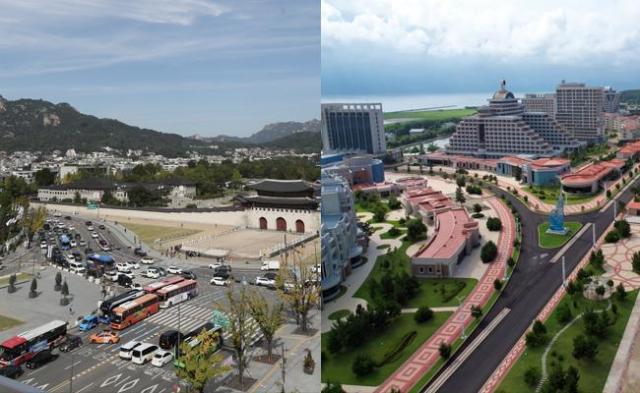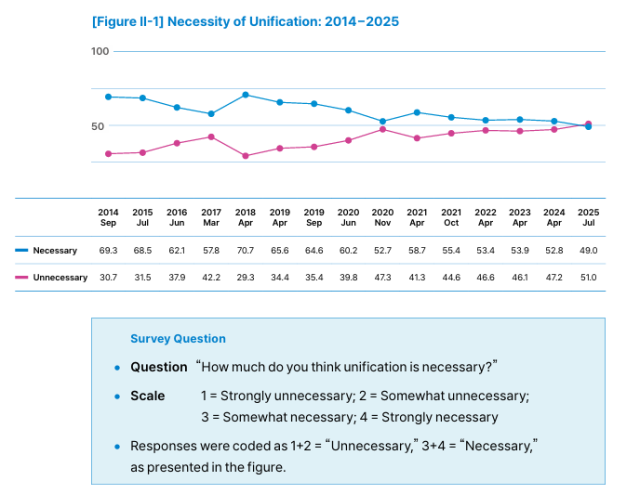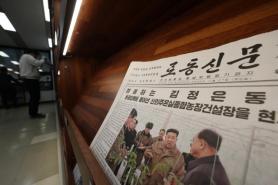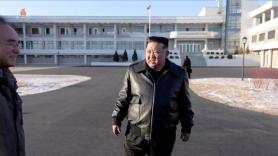
Right: This undated photo released by the state-run [North] Korean Central News Agency shows a view of the Wonsan Kalma Coastal Tourist Zone in North Korea.
SEOUL, October 21 (AJP) - "Our wish is reunification. Even in our dreams, we wish for reunification."
For South Koreans who attended elementary school in the 1970s and 1980s, these lyrics are etched in memory — a childhood chorus once sung with conviction. But eight decades after the peninsula was divided in 1945 following liberation from Japanese rule, that wish has all but faded.
A growing majority of South Koreans now regard reunification with the North as unnecessary. According to the 2025 Unification Survey released this week by the state-run Korea Institute for National Unification (KINU), 51 percent of respondents said unification is "not necessary," compared with nearly 70 percent expressing similar skepticism in 2014.
Support for reunification remains weakest among those born between 1991 and 2000, at just 38 percent. Even among those who experienced the Korean War firsthand, the sentiment has declined — with 70 percent now skeptical of unification, compared with 62.1 percent a decade ago.

The data reflect a generational and emotional divide.
"We are too different now," said 57-year-old Lee Chun-mi. "The cost and time it would take to unify and integrate both sides would be enormous, and I’m not sure the outcome would be worth it."
Others, however, continue to hold on to the hope of peaceful reconciliation.
"I wish to see it before I die — but only through a peaceful process, not absorption," said another 57-year-old, Son Chun-ae.
Younger South Koreans express similar divisions, oscillating between empathy and indifference.
"Yes, unification could help North Koreans find better jobs and create a larger, more talented nation. I want them to live better," said Kim Gi-ri, 27.
But Park Sun-min, 25, disagreed: "South Korea is doing well already. We're walking entirely different paths — I don't feel reunification is necessary."
Another respondent, Kim Jae-hyun, also in his 20s, added, "Too much time has passed. The economic, political, and social disconnect is now too deep to bridge without major sacrifices."
According to Min Tae-eun, a senior research fellow at KINU, the shift in perception is part of a natural evolution.
"For many, division has become a normalized reality," she said. "It's not natural — but it's something people have lived with for nearly 80 years, and that familiarity has made it feel normal."
For younger South Koreans, daily concerns such as jobs, housing, and economic stability now take precedence over questions of national unity. In the latest survey, 63.2 percent — the highest figure yet — responded that "if South and North can coexist peacefully without war, unification is not necessary."
Copyright ⓒ Aju Press All rights reserved.



